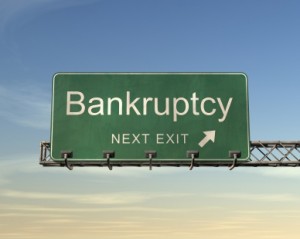
As a general rule, a debtor who files a bankruptcy petition is discharged from all personal liability for all debts incurred before the filing of the petition, which include those related to unpaid taxes. However there are five exceptions to this general rule that preclude federal income taxes from a discharge. Those five exceptions are:
1. A priority tax such as withheld payroll taxes or the IRS federal trust fund penalty.
2. A debt with respect to a fraudulent federal tax return.
3. More than three years must have elapsed since the tax return generating the tax liability was due, including extensions. Keep in mind various acts such as prior bankruptcies, collection due process (CDP) hearings and innocent spouse relief can extend this three-year time frame.
4. The actual tax return must have been filed more than two years earlier than the bankruptcy petition (generally applicable to late-filed returns). Note, however, that if IRS prepared “substitute for returns” (SFR) those SFR’s are not considered filed returns for this purpose, therefore a tax liability assessed from them would not be subject to discharge.
Therefore, it is always advisable for the debtor to file all delinquent returns and let the two year time frame pass before the bankruptcy petition is filed. Spadea & Associates, LLC can help prepare those delinquent federal and state tax returns to start that two year time frame.
5. At least 240 days must have elapsed since the date of an IRS assessment. This time frame is extended by an Offer in Compromise (OIC) and Collection Due Process Hearing (CDP).
Spadea & Associates, LLC can assist clients in determining if and when bankruptcy is a viable alternative for resolving federal tax liabilities by determining the composition of tax amounts owed and which tax liabilities might be dischargeable. Besides being aware of the tax resolution options of bankruptcy, we can recommend which administrative tax resolution methods the client should pursue first. These include innocent spouse relief, a request for abatement of penalties, an installment agreement or an offer in compromise (OIC). If those options are insufficient, bankruptcy may be the best way for clients either to secure a reasonable payment plan under Chapter 11 or Chapter 13 or to liquidate their assets to pay off all or a portion of their tax debt under Chapter 7. If you have any questions please call Gregory J. Spadea of Spadea & Associates, LLC at 610-521-0604 in Folsom, Pennsylvania







